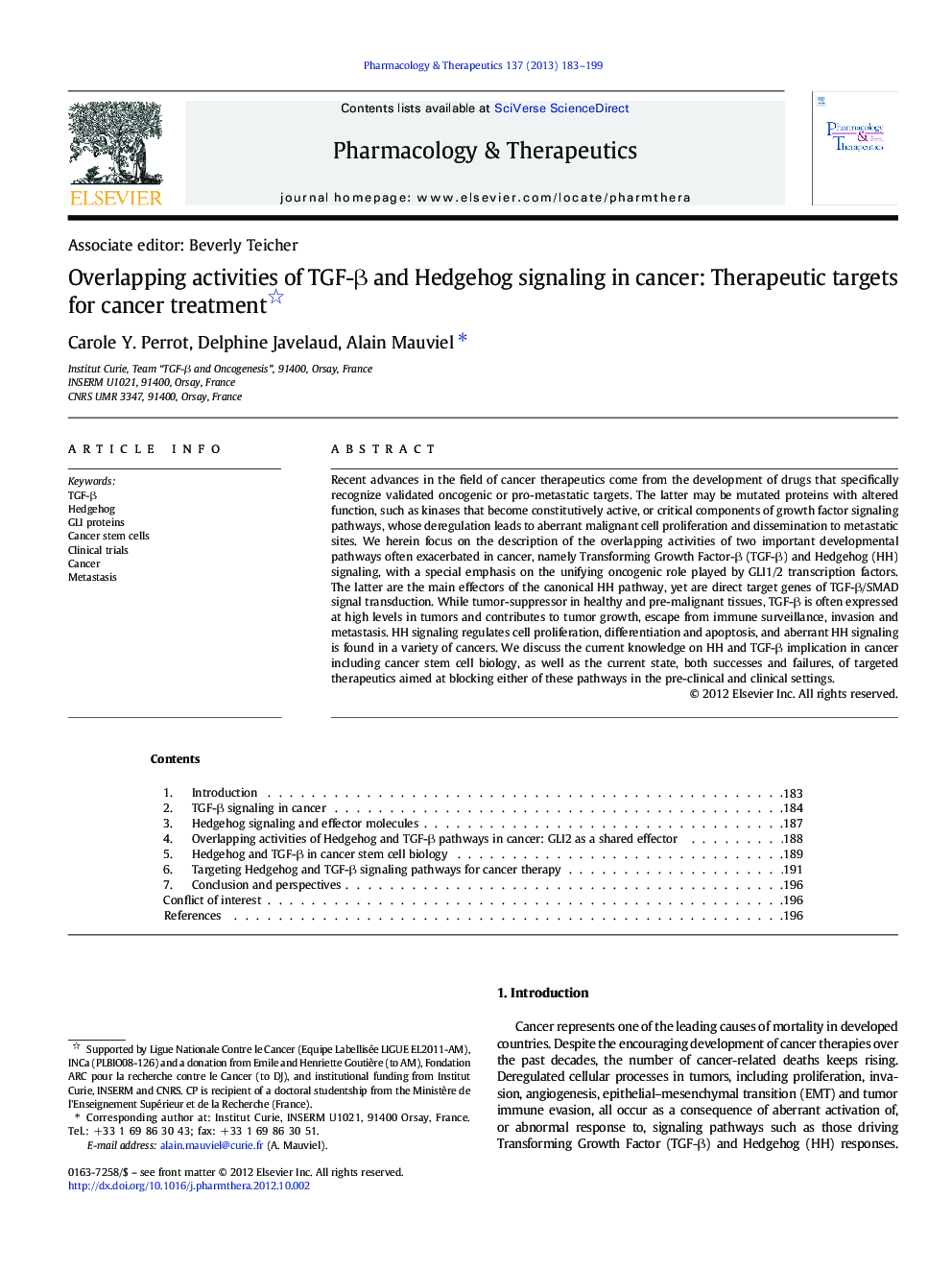| Article ID | Journal | Published Year | Pages | File Type |
|---|---|---|---|---|
| 2564019 | Pharmacology & Therapeutics | 2013 | 17 Pages |
Recent advances in the field of cancer therapeutics come from the development of drugs that specifically recognize validated oncogenic or pro-metastatic targets. The latter may be mutated proteins with altered function, such as kinases that become constitutively active, or critical components of growth factor signaling pathways, whose deregulation leads to aberrant malignant cell proliferation and dissemination to metastatic sites. We herein focus on the description of the overlapping activities of two important developmental pathways often exacerbated in cancer, namely Transforming Growth Factor-β (TGF-β) and Hedgehog (HH) signaling, with a special emphasis on the unifying oncogenic role played by GLI1/2 transcription factors. The latter are the main effectors of the canonical HH pathway, yet are direct target genes of TGF-β/SMAD signal transduction. While tumor-suppressor in healthy and pre-malignant tissues, TGF-β is often expressed at high levels in tumors and contributes to tumor growth, escape from immune surveillance, invasion and metastasis. HH signaling regulates cell proliferation, differentiation and apoptosis, and aberrant HH signaling is found in a variety of cancers. We discuss the current knowledge on HH and TGF-β implication in cancer including cancer stem cell biology, as well as the current state, both successes and failures, of targeted therapeutics aimed at blocking either of these pathways in the pre-clinical and clinical settings.
